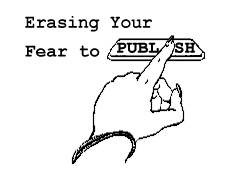Keeping Your Creative Spark During Stressful Times
Keeping Your Creative Spark During Stressful Times

It’s a stressful time. Trying to follow our creative impulses and live in a place of inspiration can seem out of reach. Guest blogger Rose Atkinson-Carter shares her thoughts with us on how writers and other creatives can be muses for positive change in the face of raging world events.
There’s no end to heartbreak in the world: first, it was the pandemic, now a war, and devastating news from all over the world pours into our phones every second of the day. Reading the news, it’s hard to think of anything but uncertainty and stress.
So how do you safeguard your creativity from the chaos of current affairs or other stressors? Slowly, gently, and with patience. Let’s look at some approaches that can help you.
Address the Stress
Even on good days, creativity doesn’t always flow abundantly. It often flourishes in the appropriate environment with the right stimuli, but stressful situations can disrupt that, and coming to terms with this reality is the first step toward keeping your creative spark.
Of course, current affairs are beyond our control, but that doesn’t mean we can’t decide how to react to them. Start by creating some degree of normalcy in your space: tune in to your own needs and understand how you might better nurture yourself — e.g., by sleeping more or walking without headphones in. Listen to your own needs before listening to the news to keep in touch with your creativity.
Throughout the day, stay grounded by designating times for working and relaxing. Hopefully, this rhythm will get your mind focused on new ideas and how to implement them, rather than frantically bouncing between them and endless worries.
Mull Things Over
With less stress, hopefully, you’ll see some room open up in your schedule. With that time, you can explore your ideas in greater depth. In other words, focus on quality rather than quantity—coming up with just a few thoughtful solutions to problems or new things to try is much more gratifying than several undeveloped, unrealistic, ultimately stressful ideas.
Elaborate on and refine your brainstormed ideas before running them by other people. Your ideas will turn out well when you or someone you partnered with ask the right questions regarding their execution.
Journaling is a wonderful way to tease out your ideas. Many people find it easiest to organize their thoughts through writing, whether in the form of bullet points, mind maps, or free-writing. Also, consider using writing software to monitor your progress and even analyze the contents of your work—you might come out of this process a much-improved writer.
Talk to Someone
If you’re having trouble concentrating, talk to your colleagues, friends, or fellow creatives about your situation. Even if they can’t help you practically, speaking to someone helps alleviate feelings of imposter syndrome. Being open and honest can remove the shame from a situation and turn it instead into a space where people can step in and offer you help.
Beyond helping you face whatever’s blocking you squarely and honestly, speaking to someone can also lead to practical help. For example, if it’s an endless to-do list that’s paralyzing you, an accountability buddy who can set goals with you for the day can help you break past that paralysis.
If your problems go deeper than procrastination and lack of focus, there’s never any shame in speaking to a therapist. They can offer professional guidance to identify what’s causing your difficulties and suggest ways to move forward.
Do Some Creative Discovery
Books are a classic way to dodge unpleasant thoughts. Now is the perfect time to make a dent in your reading list. With services like Kindle Unlimited for ebooks and Audible for audiobooks, you can find creative inspiration in as many genres or formats as you like.
If you feel the urge to create something yourself, why not try writing without self-editing? At the very least, you’ll be sharpening your creativity and becoming a better writer. And who knows: there might be an author in you ready to write a novel!
Exploring can also help your creativity. Go to a town you’ve never visited before, or if you live in a big city, walk around randomly until you find yourself somewhere new. There’s no shortage of wonderful things you might discover when you least expect it!
Whatever you do, be patient with yourself: don’t fall for toxic narratives telling you to “attack” your wandering mind. It may work for a day, but ultimately a mental good cop is a lot more sustainable than a bad cop. Give yourself time, and this, too, will pass.
Rose Atkinson-Carter is a writer with Reedsy, a marketplace that connects authors with the world’s best self-publishing resources and professionals like editors, designers, and ghostwriters. She lives in London.
